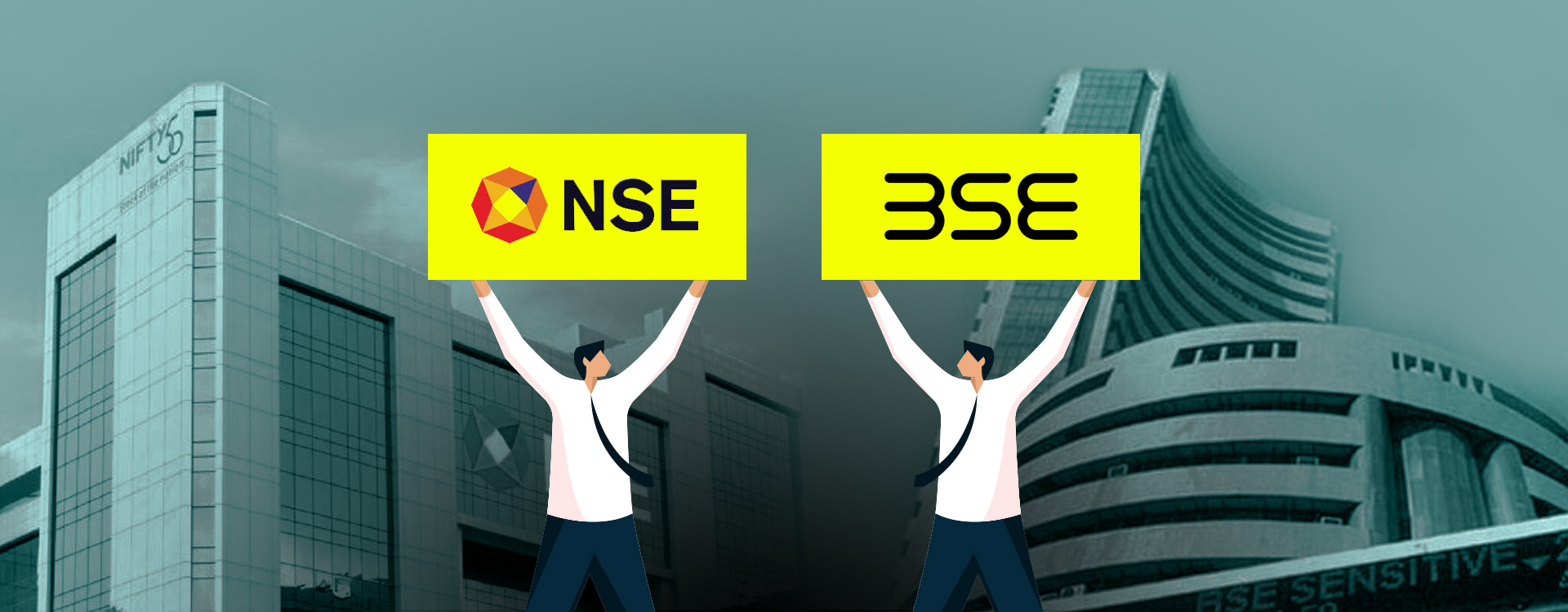The pandemic heat has affected the savings of Indian individuals that have increased investments in Indian stock markets. According to an SBI report, 44.7 lakh retail investors have been added to the stock market in the months of April-May in the 2021 fiscal. Also, as per NSE data, the share of individual investors in total turnover on the stock exchange has grown from 39 percent in March 2020 to 45 percent.
However, there is one common question that arrives across the minds of new investors – Which exchange is better to invest through, NSE or BSE?
Here in this article, we will have a detailed look at the parameters which make either NSE or BSE the best exchange to invest in.
Where to invest: NSE or BSE?
- Liquidity
Liquidity in the stock market refers to the ease or efficiency with which an investor can sell or buy its stocks that can be readily converted into cash without affecting its market price. If more buyers are willing to buy the same stocks that an investor wants to sell, it indicates that it has high liquidity.
In this parameter, NSE, despite having fewer stocks, provides more liquidity in its stocks than BSE. More liquidity in NSE can be attributed to the presence of reputed companies listing their stocks. The stocks of these companies perform steadily as their sales are high and have a strong consumer base.
- Derivative Contracts
A derivative is a contract between two or more parties whose value is based on an agreed-upon underlying financial asset, index, or stock. Without liquidity, a derivative is a dead man. NSE is the most liquid exchange for derivatives i.e. Future and Options. A future derivative contract allows investors to buy or sell a stock or index at a preset price on a future date. Option derivatives are of two types – call and put. A call option allows an investor the right to purchase an underlying stock or index at a preset price during a contract’s liquid life. When it comes to trading on indices – Nifty 50 and Bank Nifty are the most traded ones owing to their liquidity.
- Variety of Stocks
BSE has more than 5000 stocks listed whereas NSE has around 1500 stocks listed. Ever wondered why the listing is low in NSE? The reason behind this is NSE being more strict towards listing norms i.e. the reputed companies whereas in BSE even low-quality stocks can get listed. Low-quality stocks are generally associated with lower returns in the future. Investors who are interested in micro caps meaning the stock of small companies that have low market capitalisation have more choices in BSE than NSE.
- Trading volumes
Volume in the stock market means the total number of shares traded in a stipulated time frame. The stock volume displays the action that has taken place in a particular stock.
The trading volumes are generally higher on the NSE, which means if the investor wants to sell or buy sizeable quantities then NSE is a better proposition. If the stock is showing a lot of volumes, it means that there is a lot of interest or activity happening around the stock.
‘‘
As per NSE data, the share of individual investors in total turnover on the stock exchange has grown from 39 percent in March 2020 to 45 percent
What lies ahead for the new investors?
There is no better exchange as such, as it depends on the goals of the investors. BSE is more suitable for beginners or for research-based investors who rely on their accurate market intelligence with the expectation that the stock price would rise. NSE is more suitable for seasoned investors and traders who want to buy or sell large quantities to sell. If an investor wants to buy stocks of new companies then trading on BSE would be an ideal choice.




